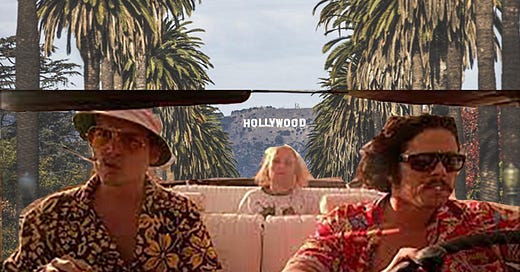THB #96: Fear & Loathing in Hollywood
Today’s column is inspired by Nicole LaPorte’s piece in The Ankler (where it is getting a little hard to distinguish who is The Ankler), "It Feels Like the Last Days of Rome."
If you haven’t read it, you should start today’s newsletter by reading it. I don’t know how accessible it is to non-subscribers, but I suspect most of the people reading this are also subscribers there. If you don’t have access and aren’t willing to pay, sorry. My newsletter today will probably make sense, though at times, it might seem incoherent. (Insert joke about this newsletter here.)
Keep reading with a 7-day free trial
Subscribe to The Hot Button by David Poland to keep reading this post and get 7 days of free access to the full post archives.




